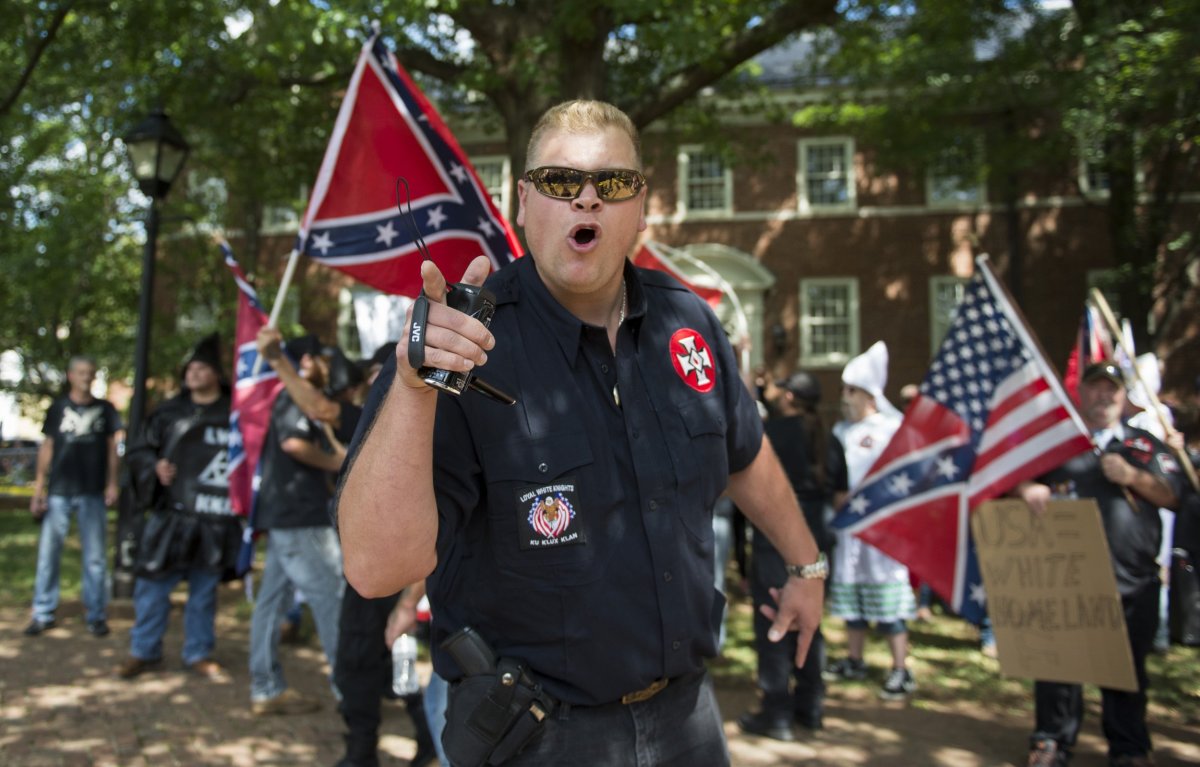This article first appeared on the Washington Spectator.
Forty years ago, in 1977, as the Director of the American Civil Liberties Union, I defended the right of a small group of Chicago-area neo-Nazis to hold a march in Skokie, Illinois.
At the time, that was very controversial. The ACLU was widely criticized.
Skokie was home for a large number of Holocaust survivors. Holding such a march in their community was especially provocative. The town quickly adopted a number of ordinances to block the march.
After a series of court battles that lasted 15 months, including one case that went to the United States Supreme Court, the ACLU prevailed and the right of the neo-Nazis to march in Skokie was upheld.
But the march never took place as the neo-Nazis did not show up on the appointed day. Not long thereafter, their small group dissolved.
At least temporarily, the Skokie case seemed costly for the ACLU. Several hundred members resigned in protest. It is possible that a much larger number failed to renew their memberships because of Skokie.
This is uncertain because Jimmy Carter had become president of the United States in 1977. Tens of thousands of ACLU members who had joined the organization during the Nixon years because of the assault on civil liberties in that era may have decided that those threats were over with Carter in the White House and allowed their memberships to lapse for reasons that had nothing to do with Skokie. The actual organizational impact of the Skokie case on the ACLU in that period is largely a matter of conjecture.
Today, the ACLU is under fire again for having defended the right of white nationalists, including neo-Nazis, to march in Charlottesville, Va. Some of the organization's critics contend that, in such circumstances, the ACLU should limit itself to defending free speech for those opposing racism. Once again, some members have resigned. Whether there will be a larger impact on the ACLU is not yet known.

Though the fundamental principles at stake in Skokie and Charlottesville are the same, there are also important differences between the two episodes.
One difference, of course, is that the Charlottesville demonstration did take place, and the results were tragic. One of the white nationalists drove into a group of counter-demonstrators, killing a young woman and injuring another 19 persons.
A number of other injuries took place in clashes between the white nationalists and the counter-demonstrators and, unfortunately, a police helicopter crashed killing two police officers.
At Skokie, the neo-Nazis proposed to march in uniform but not with weapons. Opponents of the march argued that the uniforms would be especially galling to Holocaust survivors and that they should be forbidden because they would provoke spectators to engage in violence against the marchers.
The ACLU, in turn, argued that the threat of violence by opponents of a point of view may not be a basis for forbidding expression. It would provide what one legal scholar called a "heckler's veto" over speech. The courts have long held that the proper way to deal with such threats is to provide police protection for speakers.
The fact that many of the white nationalists arrived for their demonstration in Charlottesville heavily armed has required the ACLU to look more closely at future requests for its legal assistance. The First Amendment protects the right "peaceably to assemble."
Also, a 1969 decision of the U.S. Supreme Court in an Ohio case involving the Ku Klux Klan makes it clear that speech can be prohibited in circumstances in which incitement leads to an imminent likelihood of violence. Weapons in the hands of demonstrators, whether guns, knives, or clubs, greatly enhance the imminence of violence. You can expect the ACLU to continue to defend free speech for all, regardless of the views they espouse; but not for those who decide to back up their views by threatening violence.
The other major difference between Skokie and Charlottesville is that, at Skokie, condemnation of the neo-Nazis was unanimous and unambiguous. At Charlottesville, President Trump purported to discern some "very fine people" among the white nationalists and endorsed the cause that brought them to Virginia, the preservation of monuments to those who fought the United States to preserve slavery.
At Skokie, prevailing in a legal struggle did not further the cause of the neo-Nazis. Once the legal battle was over, they disappeared. We don't yet know what will happen to the white nationalist movement after Charlottesville. Yet the fact that the president of the United States spoke about them in the way that he did seemed to elicit great enthusiasm from some of their leaders.
As a result, it does not seem likely that they will disappear anytime soon.
Aryeh Neier is President Emeritus of the Open Society Foundations.
Uncommon Knowledge
Newsweek is committed to challenging conventional wisdom and finding connections in the search for common ground.
Newsweek is committed to challenging conventional wisdom and finding connections in the search for common ground.
About the writer
To read how Newsweek uses AI as a newsroom tool, Click here.








